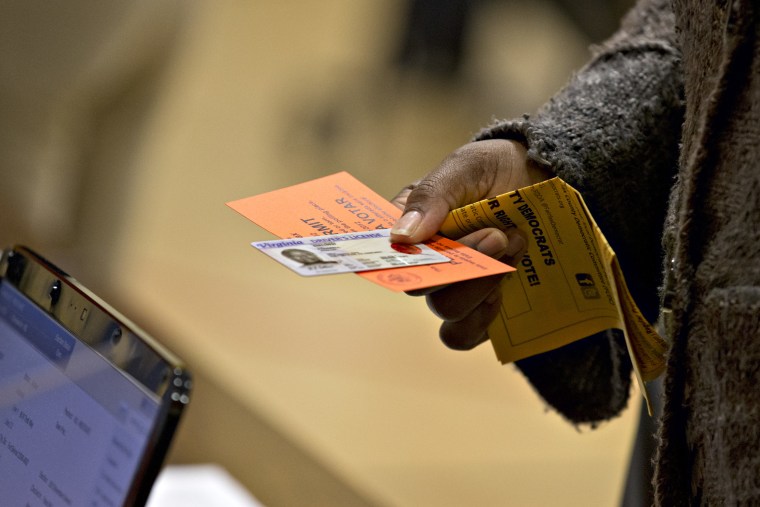Pretty much anything we do is taxed. Whether it’s flipping on our cable, making a call on our cell phone or biting into a Snickers bar. Taxes are inescapable.
The one tax-free haven, at least in theory, is voting. A free and fair vote is the bedrock of our political system. Voting is the one instance where all of us, no matter how rich or poor, influential or humble, are completely equal because there is no cost involved. Voting is the great equalizer, of course, assuming it is free.
However, this week the state of Virginia joined a growing number of states that have implemented or are pending implementation of a voting system that taxes voters. In other words, Virginia has implemented a poll tax. Governor Bob McDonnell signed into law a bill that requires voters to present a valid photo identification in order to vote.
At first read, the new voting requirement seems innocuous. Most people tend to have a photo identification either in the form of a driver’s license or school ID. And if they don’t have one, then the state will provide one free of charge. But what the bill does not address is the cost it takes to secure the documents needed to get that free ID.
According to the Virginia Department of Motor Vehicles, you can obtain an identification card principally through a birth certificate or passport. Both of these forms of ID have costs attached to them. A passport costs around $150. Securing a birth certificate is much less expensive, though there is still a fee attached, in Virginia it’ll run you $12.
To most of us 12 bucks may not seem like a lot of money. But let’s say you are an elderly person living on a pension of about $1200. Twelve dollars may be the cost of one week’s worth of medication. And the $12 fee for a birth certificate does not take into account the transportation costs associated with going to the DMV to secure the “free” voter ID.
So while the photo ID itself is free, the documents and logistics required to secure it are not. If you’re a Virginian voting in elections could now come at a cost.
Prior to 1966, you could still be explicitly charged (taxed) if you wished to cast a ballot. Coincidentall,Virginia was one of the last states to have a poll tax. It was a case brought against the Virginia Board of Elections that reached the Supreme Court in 1966 that definitively outlawed poll taxes as a result of being unconstitutional. In the Jim Crow era poll taxes were blatant, today they are discreet.
Blatant or discreet, poll taxes have had the intent of suppressing the vote. A long line of political science research tells us that as the cost of voting increases, turnout decreases. And those most disproportionately affected by the costs of voting are also those with the least resources, typically minorities, the elderly, and the foreign born.
Though signed into law, Virginia’s new voting requirements will not automatically go into effect.Virginia is one of the states covered under Section 5 of the 1965 Voting Rights Act and as a result any change in voting and/or election procedures must be approved by the Department of Justice. Section 5 was intended to safeguard against disenfranchisement such as that put forward this week in Virginia. But this legislative safeguard itself is in peril as there is a possibility that this summer the Supreme Court may rule that Section 5 is no longer applicable.
The right to a free and fair vote is in danger. At the state level, most recently in Virginia, we see the enactment of a poll tax. And perhaps more seriously, at the federal level there may no longer be a mechanism to prevent voting from once again becoming a taxable good.
This post originally appeared on NBCLatino.com.
